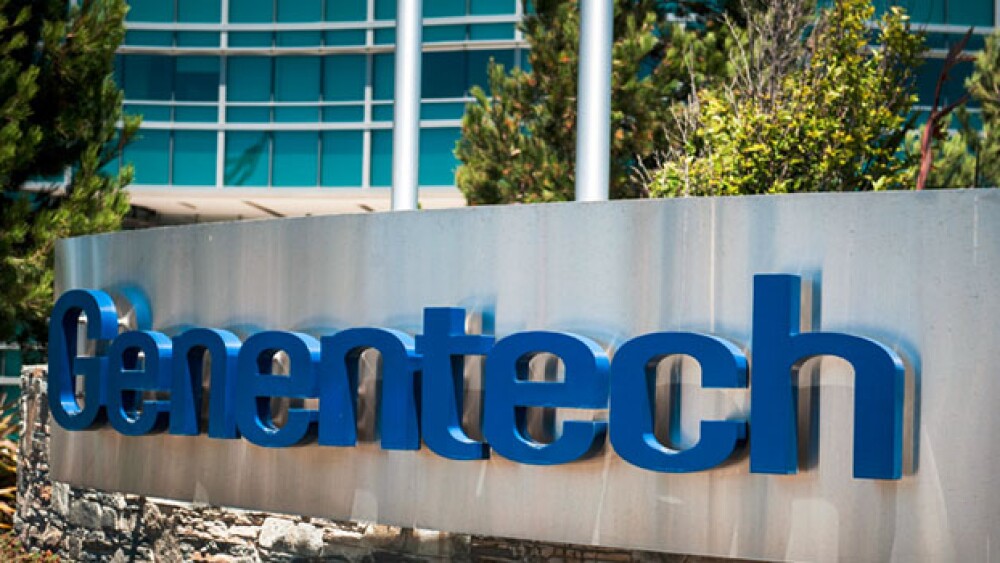The drug will be used to prevent or reduce the frequency of bleeding episodes in certain patients.
The U.S. Food and Drug Administration approved Genentech’s hemophilia drug Hemlibra (emicizumab-kxwh), which will be used to prevent or reduce the frequency of bleeding episodes in certain patients.
Genentech, a division of Swiss drug giant Roche, said Hemlibra will soon be commercially available, but did not provide a timeline. The drug was reviewed by the FDA under a priority review.
Hemlibra will be released with a boxed warning that concerns possible blood clots in patients, the FDA said. During trials, the clots were seen in patients who were “also given a rescue treatment (activated prothrombin complex concentrate) to treat bleeds for 24 hours or more while taking Hemlibra.” In October 2016, it was reported that four patients taking part in the trial suffered serious adverse events. Roche disclosed two of the patients developed thromboembolic events and two patients developed thrombotic microangiopathy.
Genentech said nearly one-third of hemophilia A patients can develop antibodies known as factor VIII inhibitors. During clinical trials, Hemlibra was shown to substantially reduce bleeds in adults and children who have hemophilia A with the inhibitors. In the Phase III HAVEN 1 study, hemophilia A patients 12 years of age or older who received Hemlibra prophylaxis had a statistically significant reduction in treated bleeds of 87 percent. Similar results were seen in the HAVEN 2 study in children younger than age 12. In that study, 87 percent (of children who received Hemlibra prophylaxis) experienced zero treated bleeds.
Sandra Horning, Genentech’s chief medical officer, said the approval of Hemlibra is an important advancement for this type of hemophilia patients who have struggled with being able to manage their bleeding issues. She said Hemlibra is the first type of medication to address this in nearly 20 years.
In its announcement, Genentech released statements from some Hemlibra patients. Amber Hill, the mother of a 7-year-old hemophilia A patient with inhibitors, said before Hemlibra, her son needed intravenous infusions that could take up to two hours at least three times a week. Hill said the family’s life revolved around their son’s treatment. Now with Hemlibra, he can administer the medication himself, she said. With the newly approved drug he has fewer bleeds and has a greater quality of life, Hill said.
“Reducing the frequency or preventing bleeding episodes is an important part of disease management for patients with hemophilia. Today’s approval provides a new preventative treatment that has been shown to significantly reduce the number of bleeding episodes in patients with hemophilia A with Factor VIII inhibitors,” Richard Pazdur, acting director of the Office of Hematology and Oncology Products in the FDA’s Center for Drug Evaluation, said in a statement. “In addition, patients treated with Hemlibra reported an improvement in their physical functioning.”
Hemophilia A is a genetic blood-clotting disorder that can lead to uncontrolled bleeding. There are about 20,000 people in the United States diagnosed with hemophilia and 320,000 worldwide. Hemophilia A is the most common form. People with hemophilia A either lack or do not have enough of a clotting protein called factor VIII. The bleeding, which often occurs in joints, can cause significant pain and can lead to chronic swelling, deformity, reduced mobility and long-term joint damage.
The annual hemophilia market is about $11 billion and Genentech hopes its indications of Hemlibra will secure a chunk of that market. With approval of Hemlibra, Genentech will rival drugs FEIBA and NovoSeven, developed by Shire Pharmaceuticals and Novo Nordisk respectively, for a share of the market.





